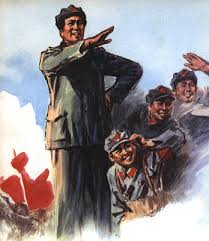
By Edward Cody, Washington Post Foreign Service Mon Aug 1, 1:00 AM ET
CHIZHOU, China — Liu Liang, a slightly built computer student with big glasses, was home in Chizhou for summer vacation. At about 2:30 on the hot afternoon of June 26, he was pedaling his bicycle by the downtown vegetable market on Cuibai Street.
Driving down the same street in his new-looking black Toyota sedan was Wu Junxing, deputy manager of a hospital in nearby Anqing. Wu, accompanied by a friend and two bodyguards, had come to Chizhou that day to attend opening ceremonies of a new private hospital and, associates said, survey the market to judge whether he should invest in his own facility.
Liu’s bicycle and Wu’s shiny four-door sedan collided, sending Liu crashing to the ground. Almost immediately, witnesses said, Liu, 22, and Wu, 34, began arguing over who was at fault. In the heat of the dispute, they said, Liu damaged one of Wu’s side-view mirrors, prompting Wu’s muscular bodyguards to burst from the car and beat the skinny young man senseless, leaving him bleeding from his mouth and ears.
The beating, part of a minor traffic incident on a slow Sunday afternoon, ignited a spark of anger. The spark became a riot, evolving over eight chaotic hours into an expression of rage against the Chinese Communist Party’s new fascination with businessmen, profits and economic growth.
After they saw what happened to Liu, Chizhou’s self-described “common people” rose up against what they perceived as their local government’s willingness to side with rich outside investors against Chizhou’s own. By the end of the evening, 10,000 Chizhou residents had filled the streets, some of whom torched police cars, pelted overwhelmed anti-riot troops with stones and looted a nearby supermarket bare.
A Chinese City’s Rage At the Rich And Powerful – Yahoo! News
A Chinese City’s Rage At the Rich And Powerful
